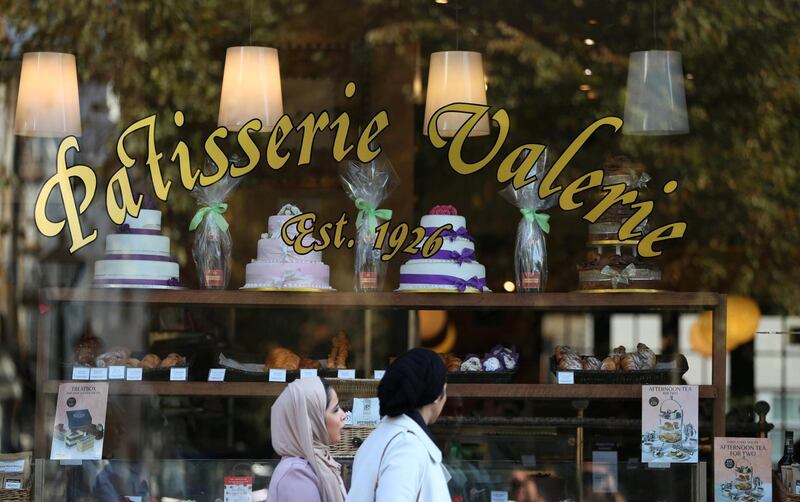Luke Johnson should have read his own aide-memoire. A month after the Patisserie Holdings chairman published an advice column on spotting fraud, his finance chief has been arrested in an accounting scandal that threatens to shut the cake baker’s 200-plus stores.
The British entrepreneur, 56, may regret writing a fraud playbook in the Sunday Times weeks before UK prosecutors started investigating one of his companies. His only hope now is that offering a multimillion-pound personal loan will pull the company out of a tailspin and restore shareholders’ trust.
On Friday, Mr Johnson proposed lending 20 million pounds (Dh96.6m) to the troubled parent of the Patisserie Valerie chain to stave off collapse. The company expects to enter into a 10 million-pound loan agreement with Mr Johnson, while the chairman also committed to a further 10 million-pound bridge loan, according to a statement from Patisserie.
The chain is also proposing to raise 15 million pounds through the issue of 30 million new shares at 50 pence each, an 88 percent discount from Tuesday’s closing share price of 492.50 pence. The new shares represent nearly a quarter of the company’s enlarged share capital.
The scandal emerged Wednesday, when Birmingham, England-based Patisserie Holdings said it had suspended chief financial officer Chris Marsh after accounting irregularities suggested there was a potential “material mis-statement” of its finances. Trading of the company’s shares was suspended on AIM. Mr Marsh and Mr Johnson couldn’t be reached for comment.
After a 24-hour investigation, the company said it would go out of business unless it secured an “immediate injection of capital”. Mr Marsh, 44, was arrested Thursday night and released on bail, and the UK’s Serious Fraud Office said it had opened a criminal probe of an individual, declining to comment further.
The Financial Reporting Council, the UK’s accounting regulator, said it was looking into the situation. Patisserie also said Wednesday that it has been hit with a demand for more than a million pounds in back taxes. The country’s tax authority, HM Revenue and Customs, said it doesn’t comment on identifiable taxpayers.
_______________
Read more:
[ Britain's Patisserie Valerie close to collapse, warns owner ]
[ Patisserie Valerie suspends CFO after discovering potential accounting fraud ]
_______________
At a crowded Patisserie Valerie in the Spitalfields area of London, business proceeded as normal Friday afternoon. A pair of men in suits sipped coffee as they waited for a colleague. The news about the cake maker’s turmoil had no effect on their orders.
“It’s a financial problem, so it doesn’t affect the food,” said one of the men, Daley Grant. “Coffee’s coffee as long as it’s hot.”
A manager declined to answer questions and said the staff had been instructed not to comment.
Patisserie Valerie first opened in London in 1926, in a bid by its Belgian owner to introduce continental pastries to the English. Eighty years later, Johnson’s private equity firm Risk Capital Partners backed the acquisition of the chain, in which he has a 37 per cent stake.
The serial entrepreneur, who first made his fortune by investing in the successful Italian restaurant chain Pizza Express, also holds shares in the iconic Brighton Pier on England’s south coast and swimming brand Zoggs.
Mr Marsh and Patisserie chief executive Paul May made millions of pounds earlier this year when they executed stock options, according to public filings. Mr Marsh netted a total of nearly 2 million pounds, while Mr May received about 2.6 million pounds. The CEO maintains a 4.3 per cent stake in the company and Mr Marsh owns about half a per cent of the company.
Mr Johnson may be more prophetic than he’d hoped. In another column, published in July, he said he’d recently dealt with an employee who had falsified invoices in what turned out to be “a minor affair”. Scandals that make their way into the news, he said, are “much grander and more dramatic”.






